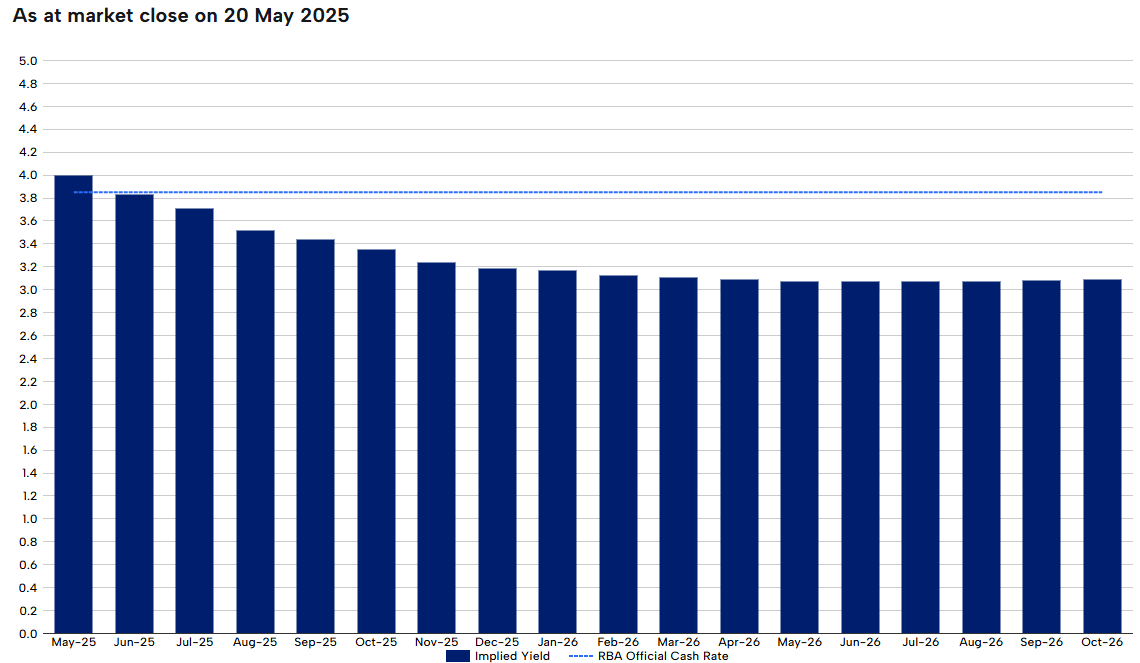Markets dial up rate cut forecasts
The media release accompanying the Reserve Bank of Australia’s (RBA) 0.25% cut to the official cash rate (OCR) on Tuesday was a fairly vanilla affair that took a neutral stance.
The release noted that risks to inflation have become “more balanced”, that policy is now “somewhat less restrictive”. The RBA also remained “cautious about the outlook” and will be “attentive to the data”.
The logical interpretation of the release is that the RBA will await the flow of domestic data and watch external developments in making future rate decisions. It will be largely data- and event-driven.
However, Governor Michele Bullock’s media appearance following the announcement was significantly more dovish, with Bullock revealing that the RBA was less worried about inflation than it was about a sharp slowdown in the global economy.
Bullock also admitted that the board had considered an oversized 0.5% cut amid a weaker global outlook and a slide in household expenditure.
“There was an argument [about a 0.5% cut] and we did debate it, and you’d expect us to debate it. But quite frankly it wasn’t the strongest argument in the room”, she said.
Financial markets responded by slashing their OCR expectations to 3.17% by year’s end, down from 3.3% before the meeting:

This pricing suggests that the financial markets are leaning toward three more 0.25% rate cuts this calendar year.
Jamieson Coote’s portfolio manager, James Wilson, described the RBA’s move as “a very dovish cut” given Governor Bullock’s comments and tone throughout the press conference, which “sounded like a victory lap in the fight against inflation”.
“The real message from the RBA today was that the economy is in better balance, inflation risks are lower, and the neutral rate is much lower than where the RBA guided to in 2024”, said Tim Toohey, Yarra Capital’s head of macro and strategy, who expects three more cuts this year.
Challenger’s chief economist, Jonathan Kearns, commented that markets were surprised by the dovish commentary and comfort around the inflation outlook, whereas Pendal bond manager Tim Hext said the RBA’s tone suggested that it was “focused on downside risks”.
